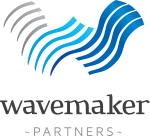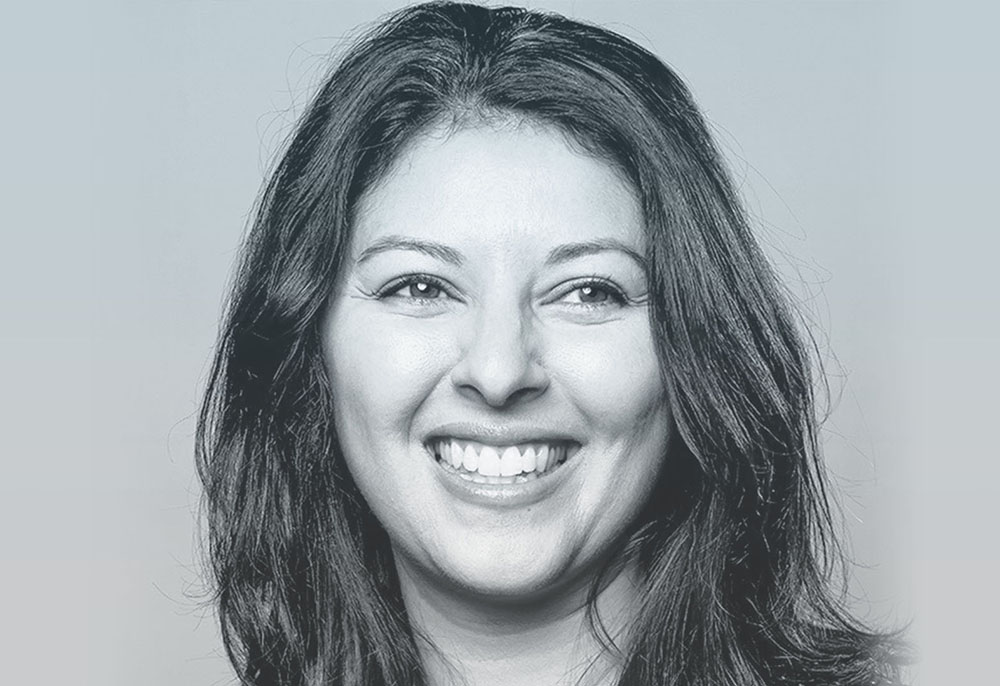A CEO Masterclass from Christine Carrillo: Building a Culture of Ownership, Autonomy and Personal Growth
Joany is your trusted digital health concierge that simplifies buying and using health insurance.Wavemaker was fortunate to back Joany during it’s seed round. We recently sat down with Joany Co-founder and CEO Christine Carrillo for a masterclass in executive leadership and building a vibrant company culture that enables your employees to reach new heights.
What were the insights that led to Joany?
The company started at a dinner party here in LA. One of our friends was a film director and he was incredibly drunk and his health insurance rates had just gone up through the producers’ guild. He was as upset as he can be. Cursing and all. He looked across at me and said “help me figure this out.”
I was running a different company in the healthcare space at the time and at first I was insulted like “I have a big kid job, I’m not helping with your health insurance.” As we kept talking it turned out his situation was a hot mess. The premium was really high. He wanted to switch out because it wasn’t covering any of his doctor visits or medication for his kids. He was paying about $3000 a month out-of-pocket for his premium and all those fees.
We ended up looking into it and a few things surprised us.
We saved him $9000 in a year and switched him a plan. This was all manual – creating a spreadsheet, capturing all this data. All as a favor to him. Then we started this little game and started to test it with friends. The more we tested it with friends to see if we could find them a better plan, the more we were getting pissed off. The first thing we did was we built an excel database with the beginnings of an algo that did all this math.
We first built this little front-end back into it. Nobody could really use it though. So then we just thought you know what open enrollment is coming. We hired this guy who just left Crunchbase who was looking for a job and he built it in 6 weeks. Helen and I focused on all the data and cleansed it and all that good stuff. Then I wrote the algorithms and the good stuff we wanted it to do.
Basically we just wanted to help people not get screwed and see the true value and hiccups if you chose a plan. You’d go in, pick your plan and it would take you to the enrollment page. Fun project and we moved on with our life. 5 months later we couldn’t let this thing go. We kept tweaking it. Making the site easier to use. Then one day Helen figured it out. She came into my office saying “I think I know how we can build a business out of this.”
At what point did you develop the conviction to start a company out of your original insight? What convinced you that this was a big enough thing to solve?
The thing was that there was nobody doing it and consumers – the individual market – were constantly being ignored. For me I have a natural tendency to fight for the underdog and I felt that all of us were the underdog in this case and nobody was doing anything about it. Any company that came into this space, like Zenefits came into the individual market then within six months pivoted to the small-business space and that is very common, it happened with Jasper, but nobody stuck around with this! So I was told a lot in the beginning that there was probably a reason that nobody sticks around with it. That maybe it doesn’t work, the model doesn’t work, there is no way to make money, it’s too hard. None of that seemed like enough reason not do it. Not being seen as a consumer when you spend so much money on this is ridiculous and just wrong.
When did you and Helen figure out you had a real company on your hands and decide to go all in?
I would say around November of 2016 – we had just raised a bridge round – and we knew we could take our $1m ARR and turn it into $9m ARR if we accelerated. Even at that point you don’t know if it is going to happen. We could see the path, but there was a piece of us saying “Is this real? Are we awake right now?”
I knew if we were going to do this we were going to go all the way. That we had very strong conviction around. We like to play this game with each other, “what if you got offered $x millions to sell. Would you sell then?” There was never enough money to make us stop. Part of that is the responsibility piece. We feel it is our responsibility to do this for all consumers. Nobody else can do this better than we can. Nobody else can see that vision better than we do. Nobody else is fighting for consumers to actually give them value.
That’s when we thought about what, “What is a great company with value to us, what does that mean?” We sat down and said “what will it take to get to $100 million in 5 years?” We set that target and worked backwards from that. If we were going to do this we weren’t going to be a “just-making it” company, we would have to go in very strong to truly make an impact.
Given the huge size of the market, the evolving problem, regulatory concerns how do you as CEO stay situationally aware and top of the changes?
I’m a voracious reader. I read all the time. My commute into work is an audiobook or a podcast. My day is kind of weird, it is incredibly scheduled because I’m usually fighting for a minute wherever I can get it. I’m constantly learning all sorts of crazy weird things, including things going on in the industry and politics. That is a habit of mine I’ve just always had. In the evenings I have to read. I read fiction every single night. It’s the only way I can go to bed. I go through 6 to 8 books a month between non-fiction and fiction. I’m constantly keeping a pulse on what is going on in healthcare.
Everything from here on out is uncharted territory, how on the execution side of things are you making sure none of the wheels come off?
The first thing is to understand that the wheels will come off. I expect things to happen everyday. Hiring really strong people around me is key. We expect you to come to work here not for us to tell you what to do, but for you to tell us what to do. On top of that you need to like an environment of autonomy and accountability. That’s a big part of it. My job is to coach everybody and to move obstacles out of your way. To give you whatever resources you need and make you feel superhuman. I have to get everything out of your way so you can fly. It’s not my job to do everything.
What impact has that had on your culture?
What’s interesting is Joany has become a place for people who like autonomy and accountability. This is a place you can do the best work of your life, you really can soar. But if you are an individual that struggles with making decisions and taking ownership, you’d struggle here, you wouldn’t fit. One of the things we do here is that once you take ownership of something you have 51% of the vote. Knowing that has a real impact. What would you do if you have 51% of the vote on things? You’d do more, you’d spread your wings more.
For strategic decisions, when do you as CEO choose to use your veto on a decision if the person who makes that decision has 51% of the vote on that decision?
On anything that is critical to the company, to the lifeline of the company. For other things some thing will have to fail as they learn the consequences of having 51%. But clear expectations are important too. What happens if this doesn’t get done? That is not up to me to decide. If you worked for me I would say “we’ve agreed that you are going to hit these numbers at the end of the year. What is going to happen if you don’t hit those numbers?” That comes back to you to decide that.
Because there is so much more freedom I think we see people moving faster. They don’t have all the red tape. You don’t have to ask me to spend $10,000. We expect people here to be running like owners. We make sure you are incredibly supported.
Where did you develop this management philosophy?
I don’t know. Over the years. I used to coach executives during the DotCom age. A lot of executives had lost their job. I’d come into departments performing poorly needing to figure out how to get more productivity. Usually it came down to how the executive was running things. There is this notion of trying to get as many hours out of somebody as possible. Instead, try squeezing as much as you can out of their brain. Usually that is where people would rather be. People want to feel useful and valuable.
I’ve been receiving CEO coaching from Jerry Colonna at Reboot as well for a year. I think all CEO’s should have a coach. Especially if you have a hypergrowth company. You definitely should have a coach or at least a peer group. I have both and there are still days I don’t feel that’s enough!
Give Joany a shot and see if it can secure you a better health plan here.



